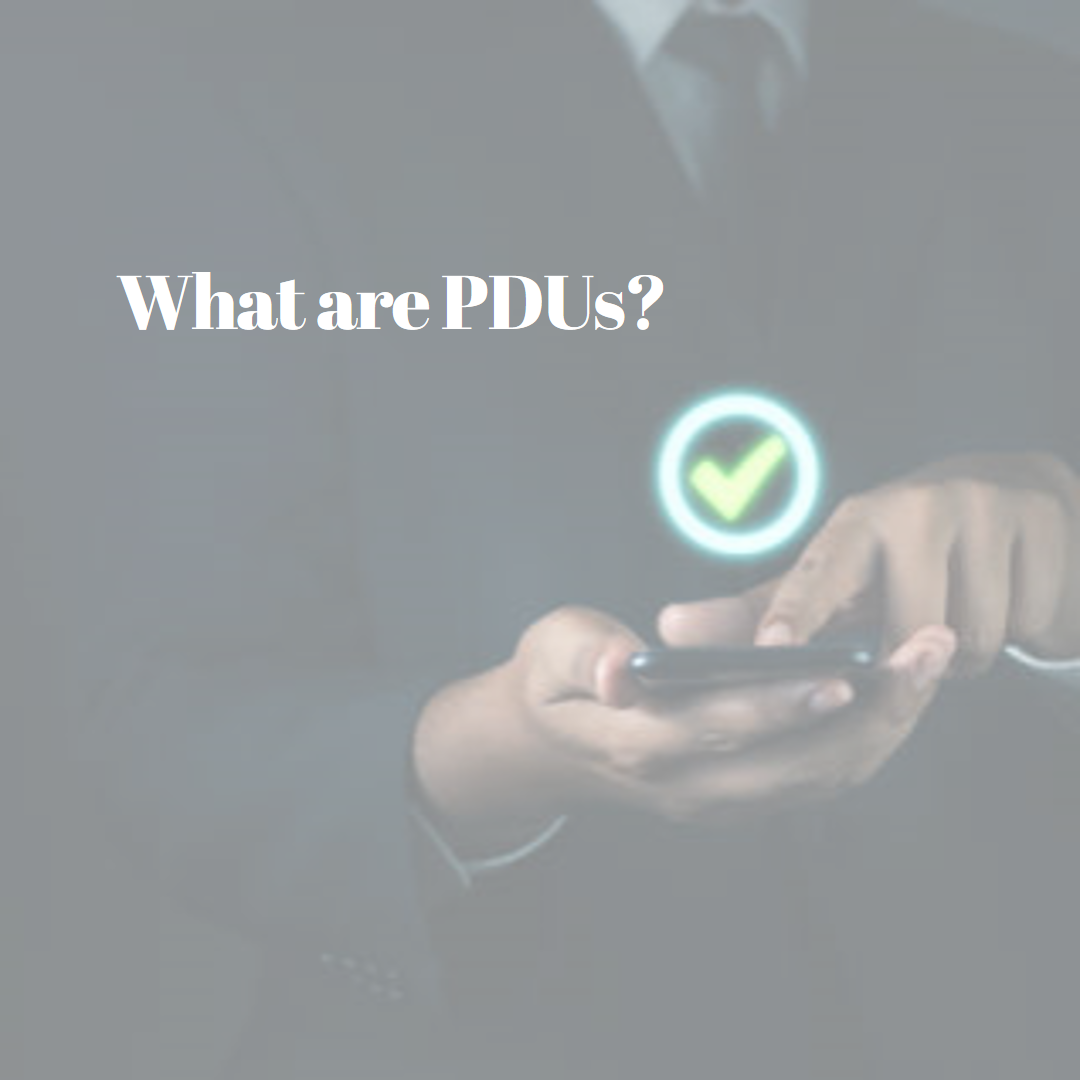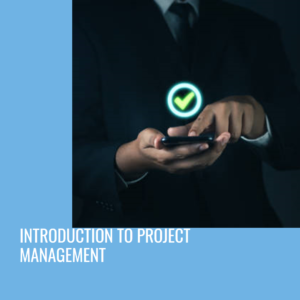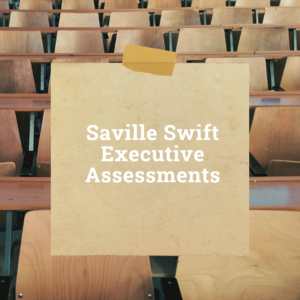Table of Contents
Introduction
If you are a project manager or aspire to become one, you might have heard of the term PDUs. But what are PDUs exactly, and why are they important for your project management career? In this article, we will answer these questions and more. We will explain what PDUs are, how they work, why you need them, and how to earn them easily and effectively. By the end of this article, you will have a clear understanding of PDUs and how they can help you achieve your professional goals and advance your project management career.
What are PDUs?
PDUs stand for Professional Development Units. They are a measure of your continuing education and professional development as a project manager. PDUs are required by the Project Management Institute (PMI), the leading global organization for project management professionals, to maintain and renew your project management certifications.
PMI offers several project management certifications, such as the Project Management Professional (PMP) ®, the Certified Associate in Project Management (CAPM) ®, the Program Management Professional (PgMP) ®, and others. Each certification has its own PDU requirements, which you can find on the PMI website.
Why are PDUs important for project managers?
PDUs are important for project managers because they help you maintain and enhance your skills and knowledge in the field of project management. Project management is a dynamic and evolving profession, which requires you to stay updated with the latest trends and best practices. PDUs help you do that by providing you with opportunities to learn from experts, peers, and other sources.
PDUs also help you demonstrate your commitment and credibility to your employers and clients. By earning PDUs, you show that you are serious about your professional development and that you value quality and excellence in your work. PDUs also help you stand out from the crowd and increase your chances of getting hired, promoted, or recognized.
What will you learn from this article?
In this article, we will cover the following topics:
- What are the types and categories of PDUs, and how are they measured and tracked by PMI?
- What are the benefits of PDUs for your skills, knowledge, and career?
- What are some tips and strategies on how to plan and manage your PDU requirements?
- What are some sources and resources for finding and accessing PDU opportunities?
- What are some best practices and recommendations on how to document and report your PDUs?
We hope you find this article helpful and informative. If you have any questions or feedback, please feel free to leave a comment below. Let’s get started!
What are PDUs and How Do They Work?
In this section, we will explain what PDUs are, what are the types and categories of PDUs, and how they are measured and tracked by PMI.
Definition and types of PDUs
As we mentioned in the introduction, PDUs stand for Professional Development Units. They are a measure of your continuing education and professional development as a project manager. PDUs are required by PMI to maintain and renew your project management certifications.
There are two main types of PDUs: education and giving back. Education PDUs are earned by learning new skills and knowledge related to project management. Giving back PDUs are earned by sharing your skills and knowledge with others, such as by volunteering, teaching, or writing.
Each type of PDU has its own minimum and maximum requirements, depending on your certification. For example, for the PMP certification, you need to earn at least 35 education PDUs and no more than 25 giving back PDUs in a three-year cycle. You can find the specific requirements for each certification on the PMI website.
Measurement and tracking of PDUs by PMI
PDUs are measured in hours, which means that one hour of learning or giving back activity equals one PDU. However, some activities may have different PDU values, depending on the type and category of the activity. For example, one hour of working as a project practitioner can earn you up to eight PDUs per cycle.
PMI tracks your PDUs through an online system called the Continuing Certification Requirements System (CCRS). You can access the CCRS through your PMI account, where you can view your PDU status, report your PDU activities, and submit your renewal application. You can also use the CCRS to search for PDU opportunities offered by PMI or other providers.
Examples of PDU activities and categories
There are many ways to earn PDUs, depending on your interests, preferences, and goals. Here are some examples of PDU activities and their categories:
- Education PDUs
- Ways of Working: These are PDUs earned by learning about the methods, frameworks, and tools that support project delivery, such as agile, hybrid, or waterfall. Examples of activities include taking courses, webinars, podcasts, or reading books or articles on these topics.
- Power Skills: These are PDUs earned by learning about the interpersonal and leadership skills that enable project success, such as communication, collaboration, problem-solving, or emotional intelligence. Examples of activities include attending workshops, seminars, coaching sessions, or mentoring programs on these skills.
- Business Acumen: These are PDUs earned by learning about the business environment and context that affect project outcomes, such as strategy, governance, risk, or compliance. Examples of activities include participating in conferences, symposiums, panels, or case studies on these areas.
- Giving Back PDUs
- Volunteering: These are PDUs earned by contributing your time and skills to a social or professional cause, such as a non-profit organization, a PMI chapter, or a community project. Examples of activities include serving as a board member, a committee member, a project leader, or a project team member for these causes.
- Teaching: These are PDUs earned by sharing your knowledge and experience with others, such as students, peers, or colleagues. Examples of activities include delivering presentations, lectures, workshops, or webinars on project management topics.
- Writing: These are PDUs earned by creating and publishing content related to project management, such as articles, blogs, books, or white papers. Examples of activities include writing, editing, reviewing, or distributing these content.
Why Do You Need PDUs for Your Project Management Career?
In this section, we will discuss the benefits of PDUs for your skills, knowledge, and career. We will also explain how PDUs can help you stay updated with the latest project management trends and best practices, and how they can help you demonstrate your credibility and commitment to your employers and clients.
Benefits of PDUs for skills and knowledge
PDUs are not just a requirement for maintaining your certification, they are also a valuable opportunity for enhancing your skills and knowledge in the field of project management. By earning PDUs, you can:
- Learn new skills and knowledge that are relevant and applicable to your current or future projects. For example, you can learn about new methods, frameworks, or tools that can help you deliver your projects more efficiently and effectively.
- Refresh and update your existing skills and knowledge that may have become outdated or obsolete over time. For example, you can refresh your knowledge of the project management standards, processes, and best practices that are recognized and followed by the global project management community.
- Expand and diversify your skills and knowledge that can help you broaden your perspective and scope of your projects. For example, you can learn about the business environment and context that affect your project outcomes, such as strategy, governance, risk, or compliance.
By enhancing your skills and knowledge, you can improve your performance and quality of your work, as well as increase your confidence and satisfaction as a project manager.
PDUs and project management trends and best practices
Project management is a dynamic and evolving profession, which requires you to stay updated with the latest trends and best practices that shape the field. PDUs can help you do that by providing you with opportunities to learn from experts, peers, and other sources. Some of the current and emerging trends and best practices in project management include:
- Agile and hybrid project management: These are approaches that emphasize flexibility, adaptability, and collaboration in project delivery, as opposed to the traditional waterfall approach that follows a linear and sequential process. Agile and hybrid project management are becoming more popular and widely used, especially in complex and uncertain environments, such as software development, digital transformation, or innovation projects.
- Project management software and tools: These are applications that help you plan, execute, monitor, and control your projects, using features such as task management, scheduling, budgeting, reporting, communication, collaboration, and more. Project management software and tools can help you streamline your workflow, automate your tasks, and enhance your productivity and efficiency.
- Project management skills and competencies: These are the abilities and attributes that enable you to perform your role as a project manager effectively and successfully. Project management skills and competencies include both technical skills, such as project planning, risk management, or quality management, and soft skills, such as communication, leadership, problem-solving, or emotional intelligence.
By staying updated with the latest project management trends and best practices, you can ensure that your projects are aligned with the current and future needs and expectations of your stakeholders, as well as the industry standards and regulations.
PDUs and credibility and commitment
PDUs are not only beneficial for your skills and knowledge, they are also beneficial for your career. By earning PDUs, you can demonstrate your credibility and commitment to your employers and clients. By demonstrating your credibility and commitment, you can:
- Show that you are serious about your professional development and that you value quality and excellence in your work. By earning PDUs, you show that you are willing to invest your time and effort to maintain and enhance your skills and knowledge, and that you are not complacent or stagnant in your career.
- Show that you are qualified and competent for your role and that you have the skills and knowledge that are required and expected for your projects. By earning PDUs, you show that you have the credentials and certifications that are recognized and respected by the global project management community, and that you have the ability to deliver your projects successfully.
- Show that you are aware and responsive to the changing needs and expectations of your stakeholders and that you can adapt and innovate to meet their requirements and preferences. By earning PDUs, you show that you are updated with the latest trends and best practices in project management, and that you can use them to improve your project outcomes and satisfaction.
By demonstrating your credibility and commitment, you can increase your chances of getting hired, promoted, or recognized, as well as build trust and rapport with your employers and clients.
How to Earn PDUs Easily and Effectively?
In this section, we will provide some tips and strategies on how to plan and manage your PDU requirements. We will also suggest some sources and resources for finding and accessing PDU opportunities. Finally, we will share some best practices and recommendations on how to document and report your PDUs.
Tips and strategies for planning and managing PDUs
Earning PDUs can be easy and effective if you plan and manage your PDU requirements well. Here are some tips and strategies to help you do that:
- Know your PDU requirements: The first step is to know how many PDUs you need to earn, what types and categories of PDUs you need to earn, and when you need to earn them by. You can find this information on the PMI website, or by logging into your PMI account and accessing the CCRS. You can also use the PMI PDU Calculator to estimate your PDU needs based on your certification and cycle dates.
- Set your PDU goals: The next step is to set your PDU goals, based on your PDU requirements and your professional goals. You can set your PDU goals in terms of the number of PDUs you want to earn per month, quarter, or year, as well as the types and categories of PDUs you want to focus on. You can also align your PDU goals with your career goals, such as learning new skills, gaining new knowledge, or expanding your network.
- Create your PDU plan: The third step is to create your PDU plan, based on your PDU goals and your availability and preferences. You can create your PDU plan by identifying and selecting the PDU activities that suit your needs and interests, as well as your schedule and budget. You can also prioritize and schedule your PDU activities, as well as track and monitor your progress and performance.
- Review and update your PDU plan: The final step is to review and update your PDU plan, based on your feedback and results. You can review and update your PDU plan by evaluating and reflecting on your PDU activities, as well as your PDU goals and requirements. You can also make adjustments and improvements to your PDU plan, as well as celebrate and reward your achievements.
By following these tips and strategies, you can earn PDUs easily and effectively, as well as enjoy and benefit from your PDU activities.
Sources and resources for finding and accessing PDUs
There are many sources and resources for finding and accessing PDU opportunities, depending on your needs and preferences. Here are some of the most common and popular sources and resources for PDUs:
- PMI: PMI is the primary source and resource for PDUs, as it offers a variety of PDU opportunities for its members and certification holders. Some of the PDU opportunities offered by PMI include:
- PMI Events: These are events organized by PMI or its chapters, such as conferences, symposiums, seminars, webinars, or workshops, where you can learn from experts, peers, and other stakeholders on various project management topics. You can find and register for PMI events on the PMI website or the PMI Events app.
- PMI Online Courses: These are courses offered by PMI or its partners, such as BrainSensei where you can learn online at your own pace and convenience on various project management topics. You can find and enroll on Brainsensei, including a 7 day free trial here.
- PMI Publications: These are publications produced by PMI or its affiliates, such as books, articles, podcasts, or white papers, where you can read or listen to the latest research, insights, and best practices on various project management topics. You can find and access PMI publications on the PMI website or the PMI Knowledge Center.
- Other Providers: Besides PMI, there are also other providers that offer PDU opportunities for project managers, such as universities, colleges, training institutes, consulting firms, or online platforms. Some of the PDU opportunities offered by other providers include:
- Formal Education: These are courses or programs offered by accredited educational institutions, such as universities, colleges, or training institutes, where you can earn a degree, diploma, certificate, or credential in project management or related fields. You can find and apply for formal education programs on the websites of the educational institutions or the PMI Global Accreditation Center.
- Informal Learning: These are learning activities offered by various sources, such as mentors, coaches, peers, colleagues, or online platforms, where you can learn informally through interaction, discussion, or feedback on project management or related topics. You can find and access informal learning activities on the websites or apps of the sources, or by networking and connecting with them.
- Self-Directed Learning: These are learning activities that you initiate and complete on your own, such as reading books, articles, blogs, or white papers, watching videos, webinars, or podcasts, or taking quizzes, tests, or assessments on project management or related topics. You can find and access self-directed learning activities on websites such as BrainSensei which offers a full PDU package..
By exploring and utilizing these sources and resources, you can find and access PDU opportunities that suit your needs and preferences, as well as your schedule and budget.
Best practices and recommendations for documenting and reporting PDUs
The last but not least aspect of earning PDUs is documenting and reporting them. Documenting and reporting PDUs are important because they help you keep track of your PDU status, as well as prove and verify your PDU activities. Here are some best practices and recommendations for documenting and reporting PDUs:
- Document your PDU activities: The first step is to document your PDU activities, which means to collect and store the evidence and information of your PDU activities, such as the name, date, duration, type, category, provider, and description of the activity, as well as the certificate, transcript, receipt, or confirmation of the activity. You can document your PDU activities by using tools such as spreadsheets, folders, or apps, or by using the CCRS.
- Report your PDU activities: The second step is to report your PDU activities, which means to submit and record the evidence and information of your PDU activities to PMI, using the CCRS. You can report your PDU activities by logging into your PMI account and accessing the CCRS, where you can enter the details of your PDU activities, as well as upload the supporting documents if required. You can also use the CCRS to view your PDU status and history, as well as to apply for your renewal.
- Review and verify your PDU activities: The final step is to review and verify your PDU activities, which means to check and confirm the accuracy and validity of your PDU activities, as well as to respond to any queries or requests from PMI. You can review and verify your PDU activities by checking your email and PMI account regularly, as well as by following the instructions and guidelines from PMI. You can also contact PMI customer care or your local PMI chapter if you have any questions or issues regarding your PDU activities.
By following these best practices and recommendations, you can document and report your PDUs easily and effectively, as well as avoid any problems or delays in your renewal process.
Conclusion
In this article, we have learned what PDUs are and how they can help you achieve your professional goals and advance your project management career. We have covered the following topics:
- What are PDUs and how do they work?
- Why do you need PDUs for your project management career?
- How to earn PDUs easily and effectively?
We hope you have found this article helpful and informative. PDUs are not just a requirement for maintaining your certification, they are also a valuable opportunity for enhancing your skills and knowledge, staying updated with the latest trends and best practices, and demonstrating your credibility and commitment. By earning PDUs, you can improve your performance and quality of your work, as well as increase your confidence and satisfaction as a project manager.
If you have any questions or feedback, please feel free to leave a comment below. We would love to hear from you. If you would like to find out more about the certifications for Project Management or even about BrainSensei, click on the link here or the banner below. Thank you for reading this article and happy PDU earning!





